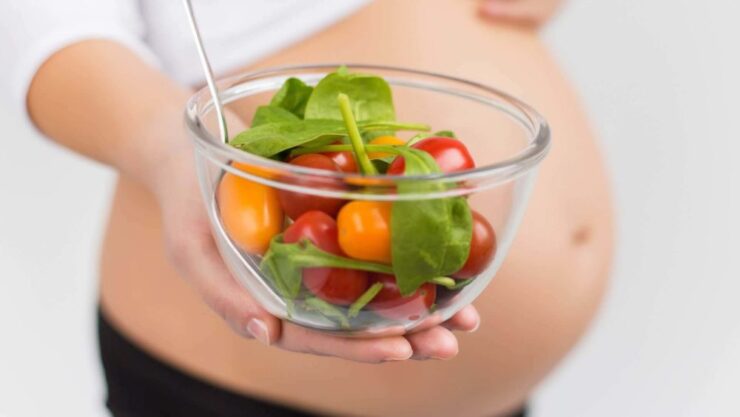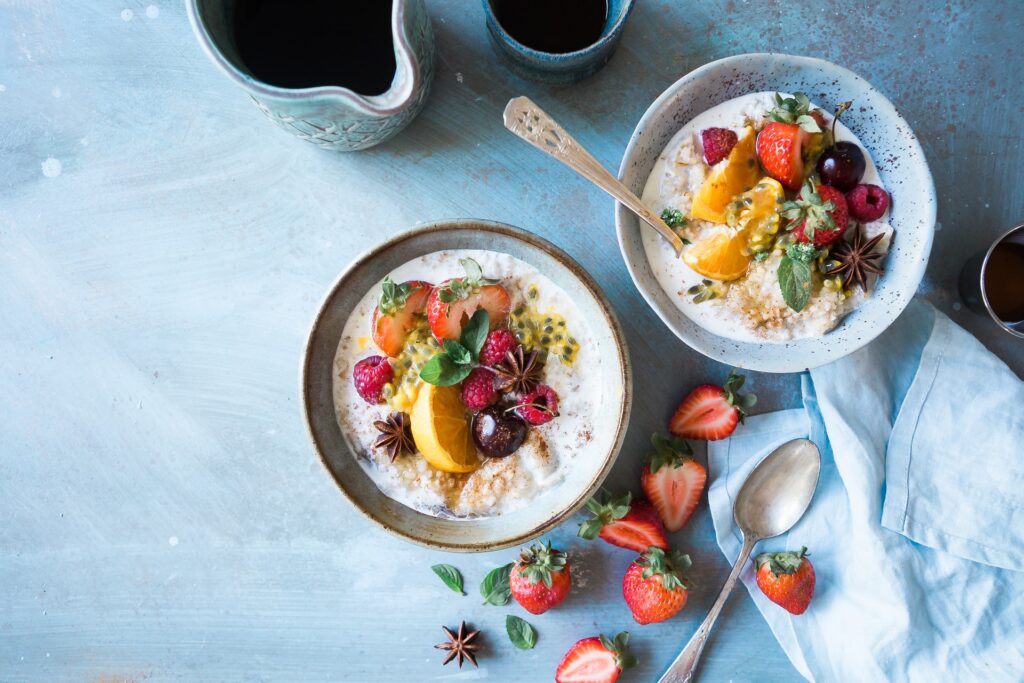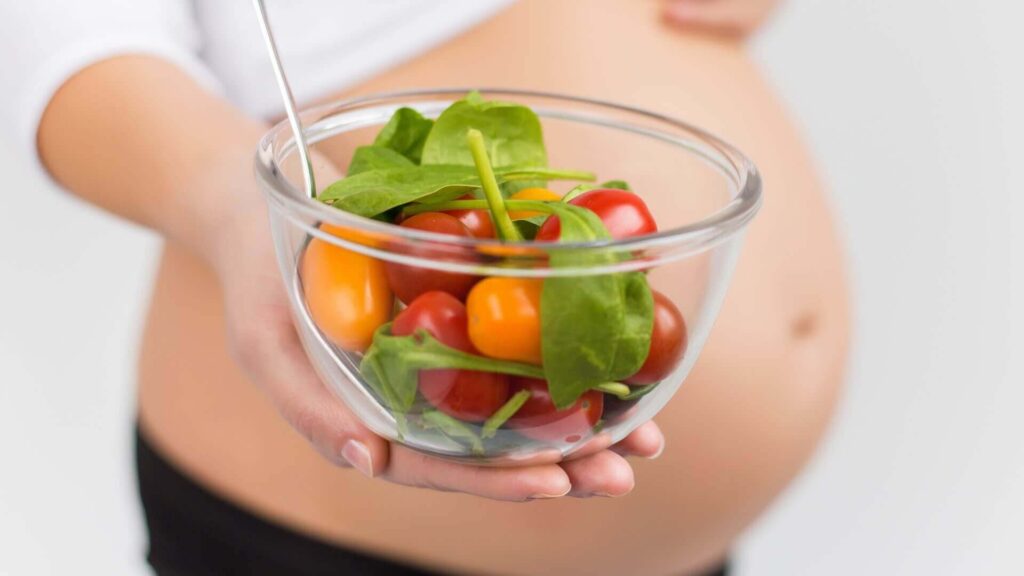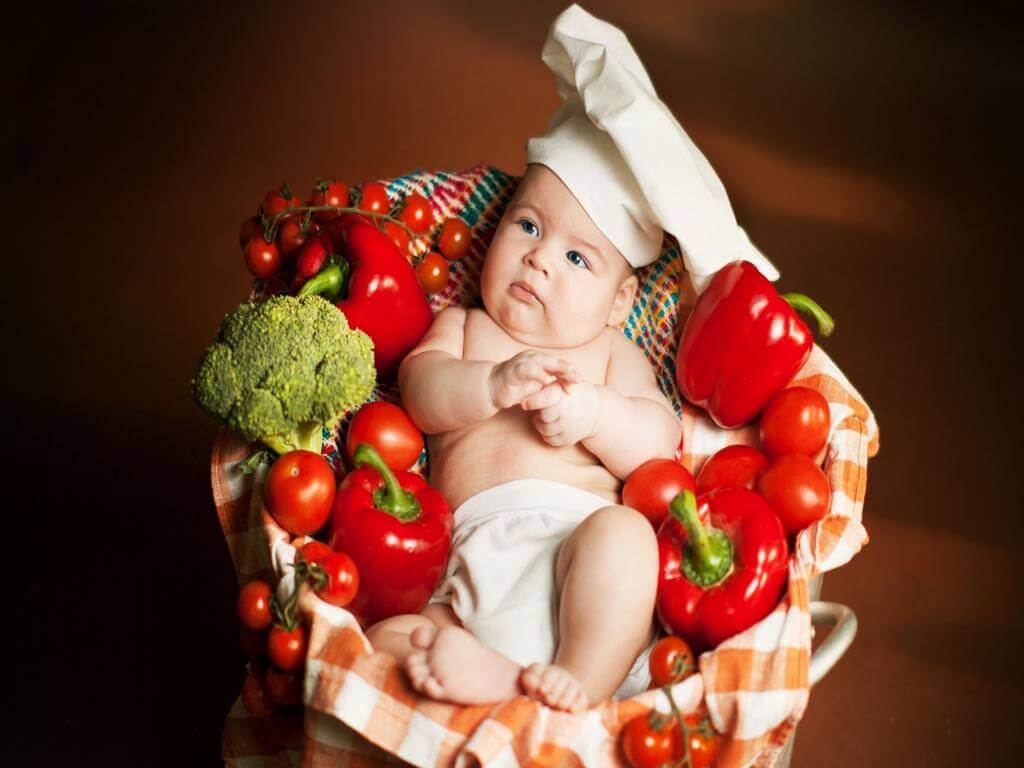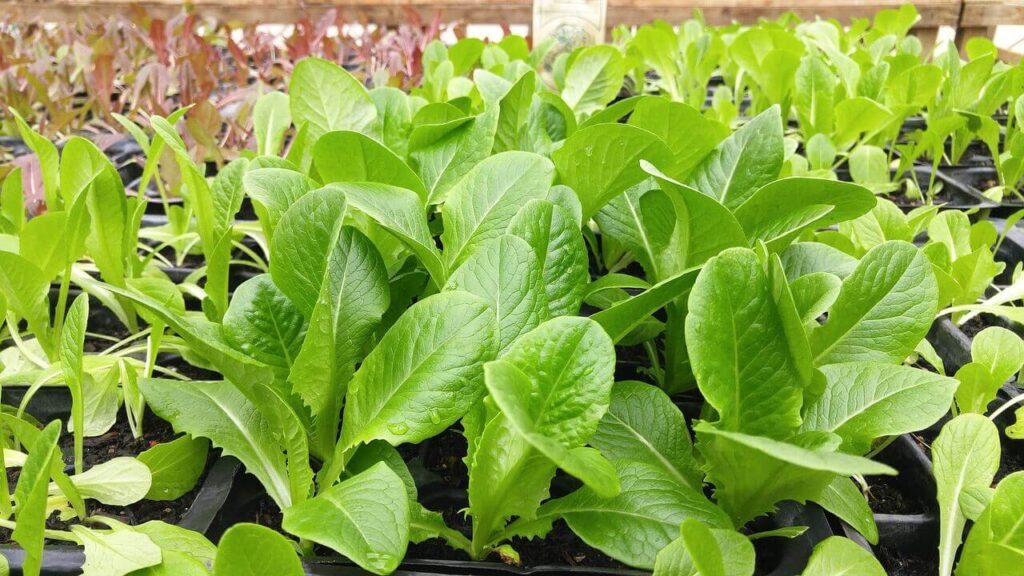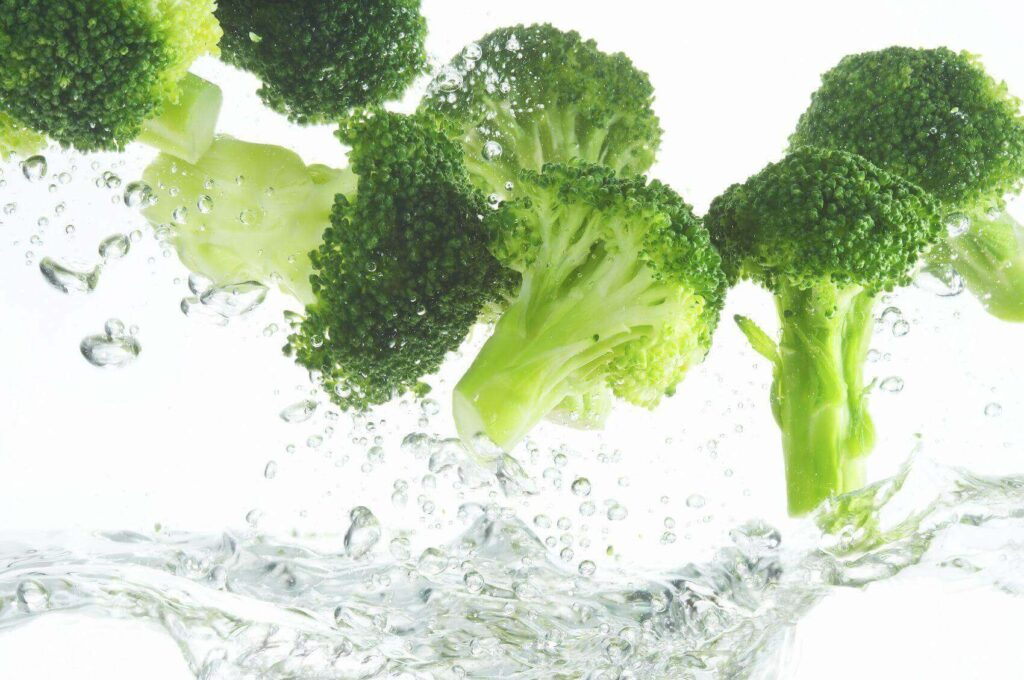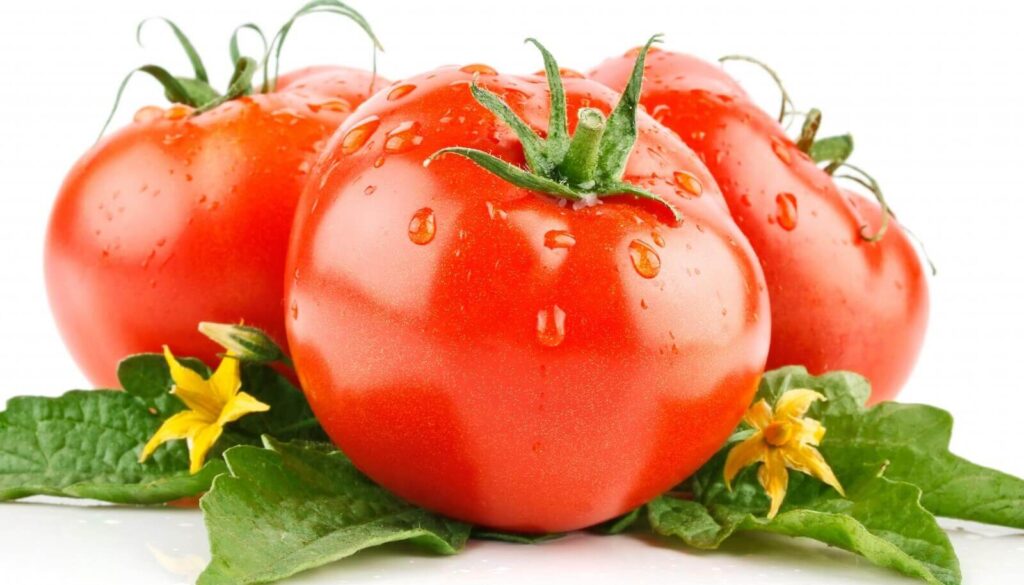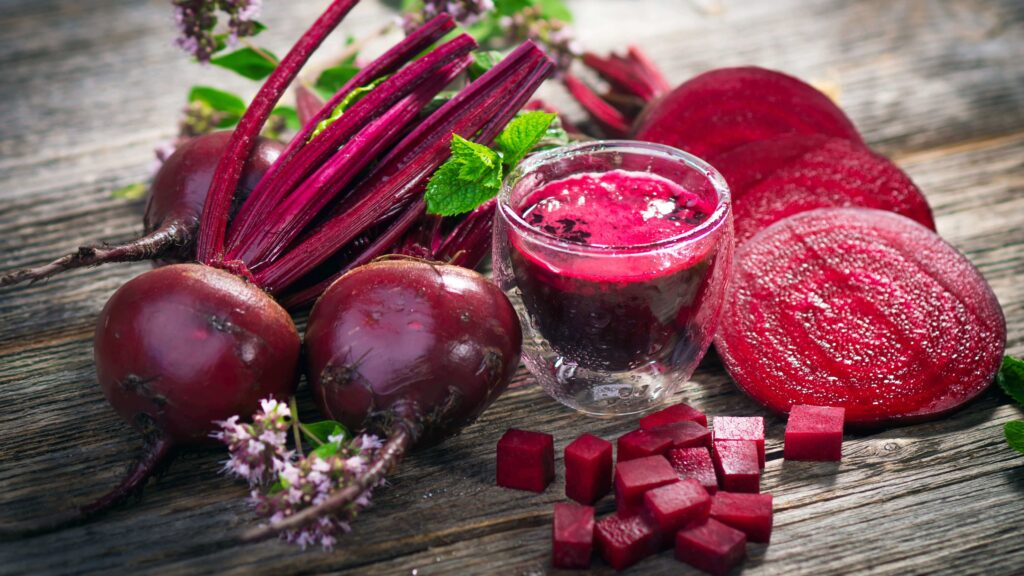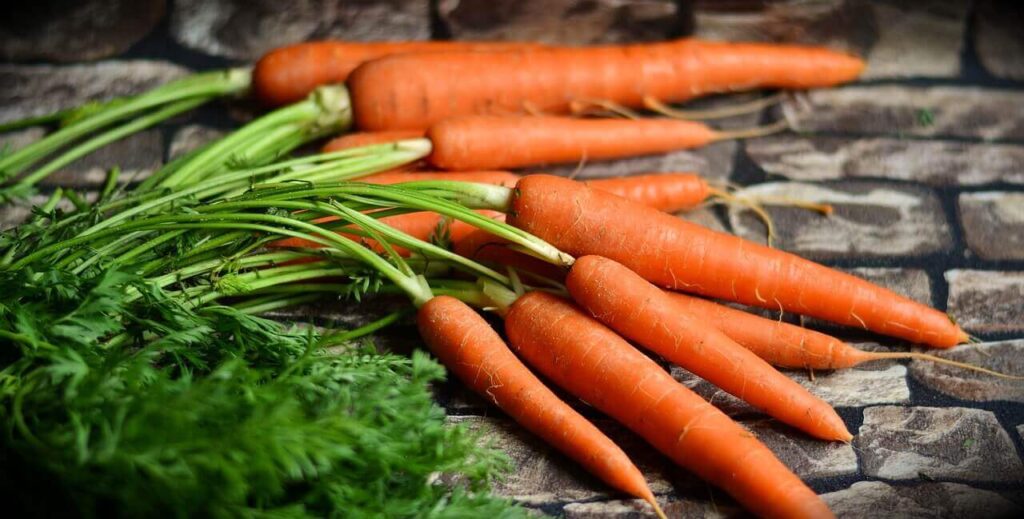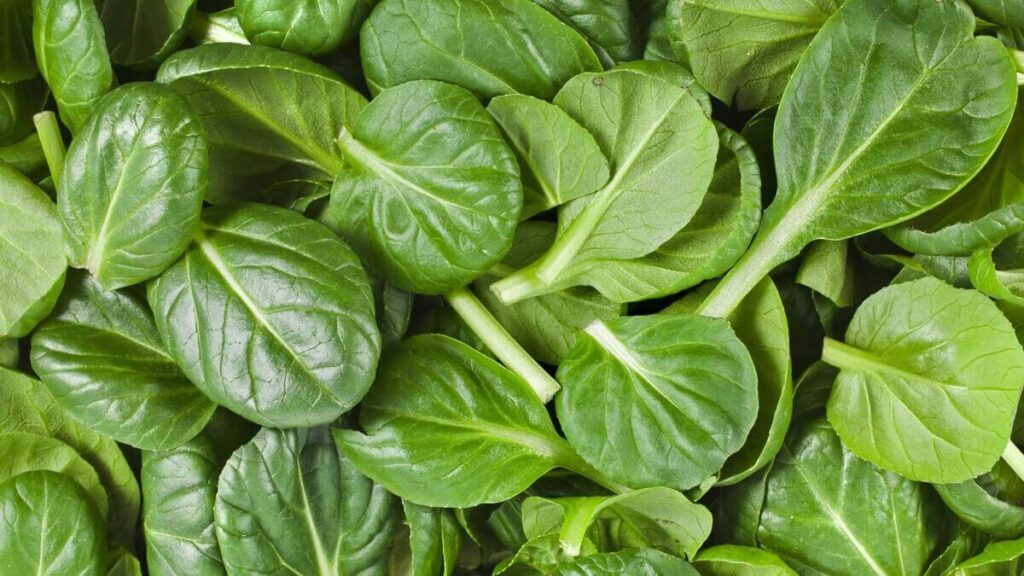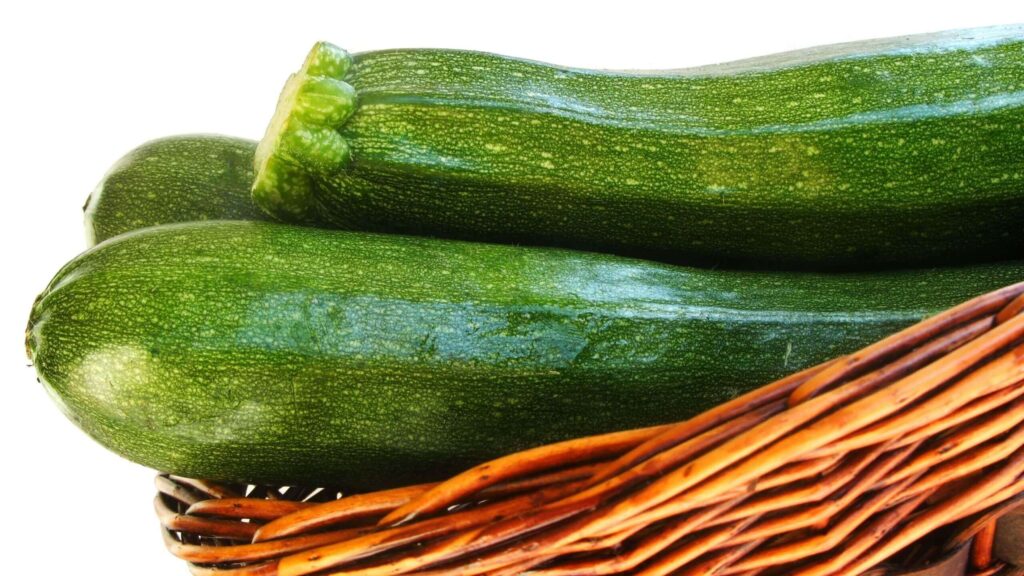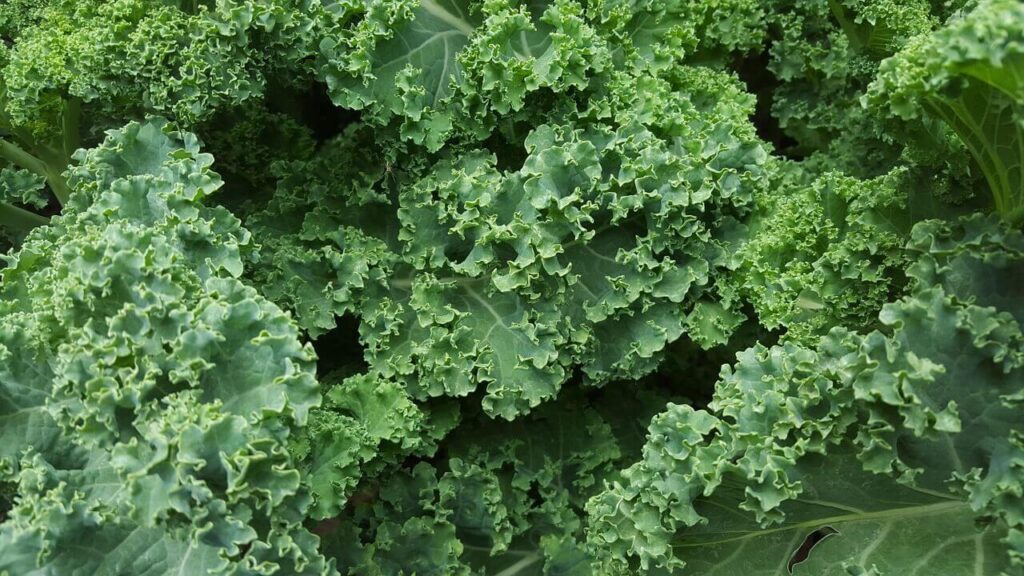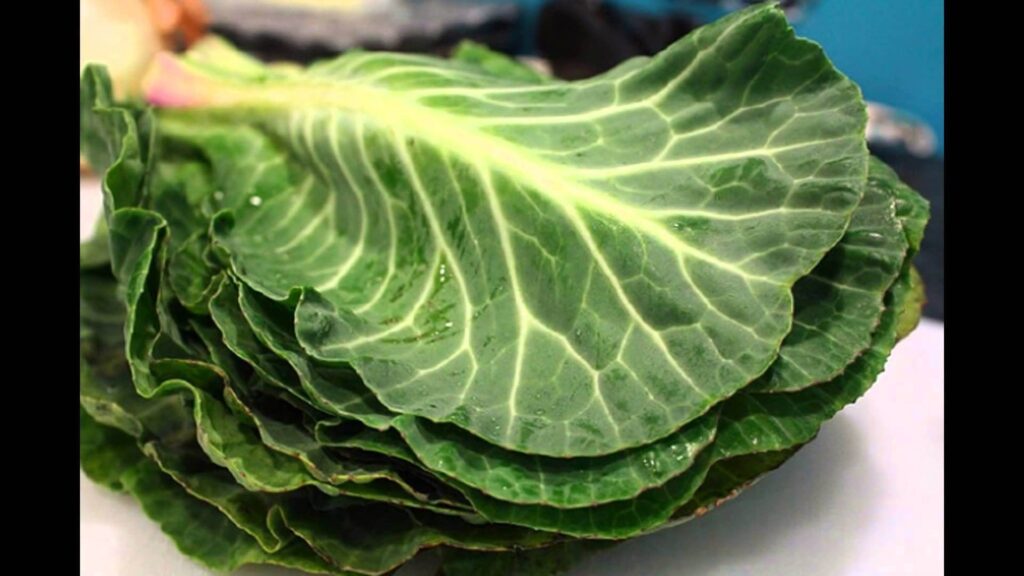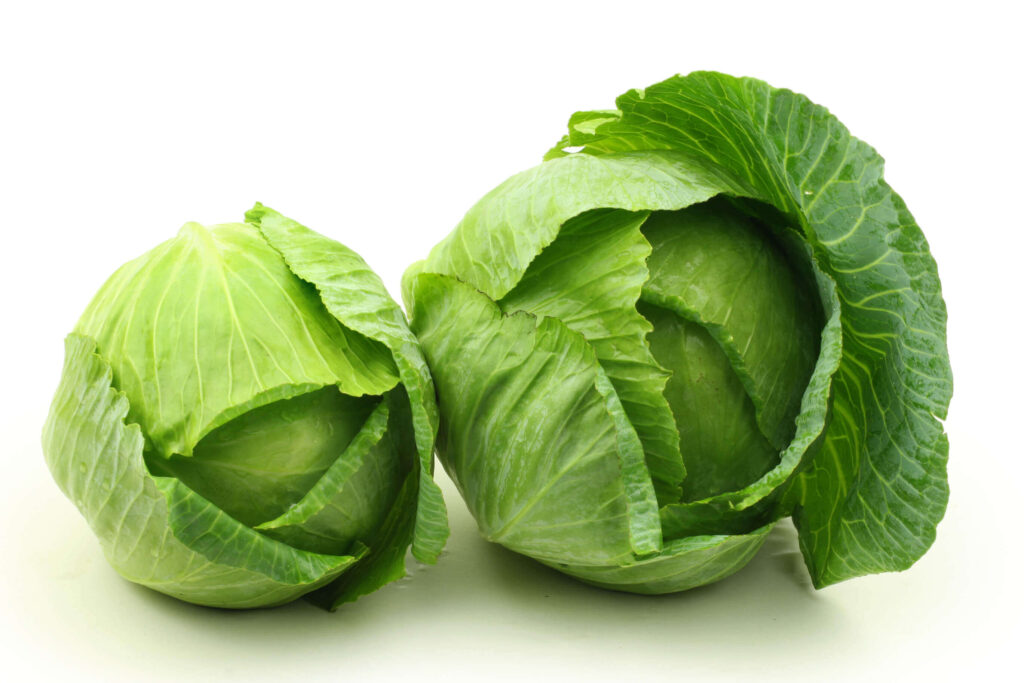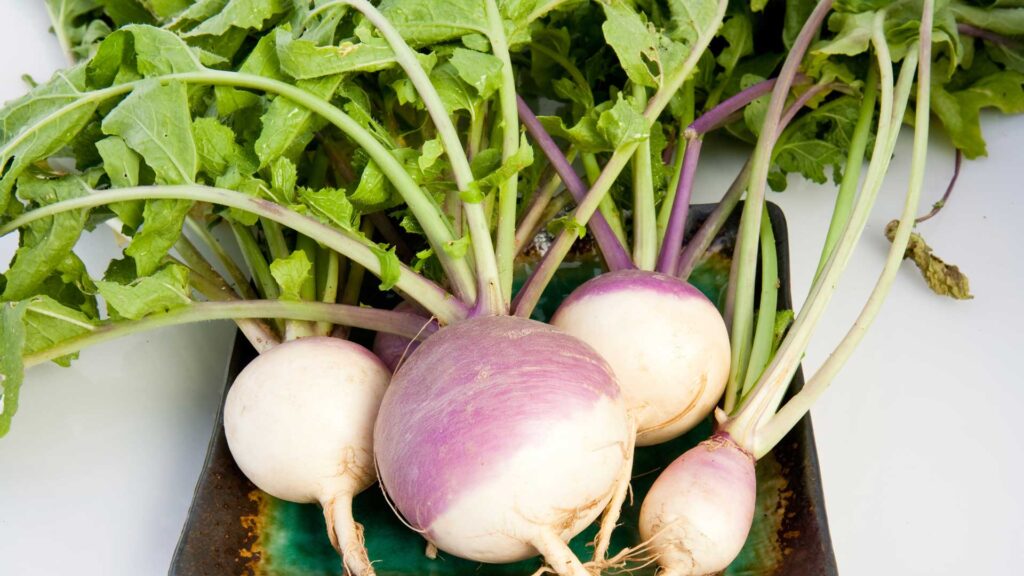Eating a balanced diet is a significant factor throughout any pregnancy.
The good amount of nutrition can be accountable for maintaining a healthy growth in the unborn child.
While several women drop their appetites and experience nausea in the initial months of pregnancy, there are definite foods each pregnant should be sure to eat throughout the first trimester assuming they can consume something more than water and saltines.
TheBabySide this article will talk about the best vegetables to eat during pregnancy.
Why is it important to take a healthy diet during pregnancy?
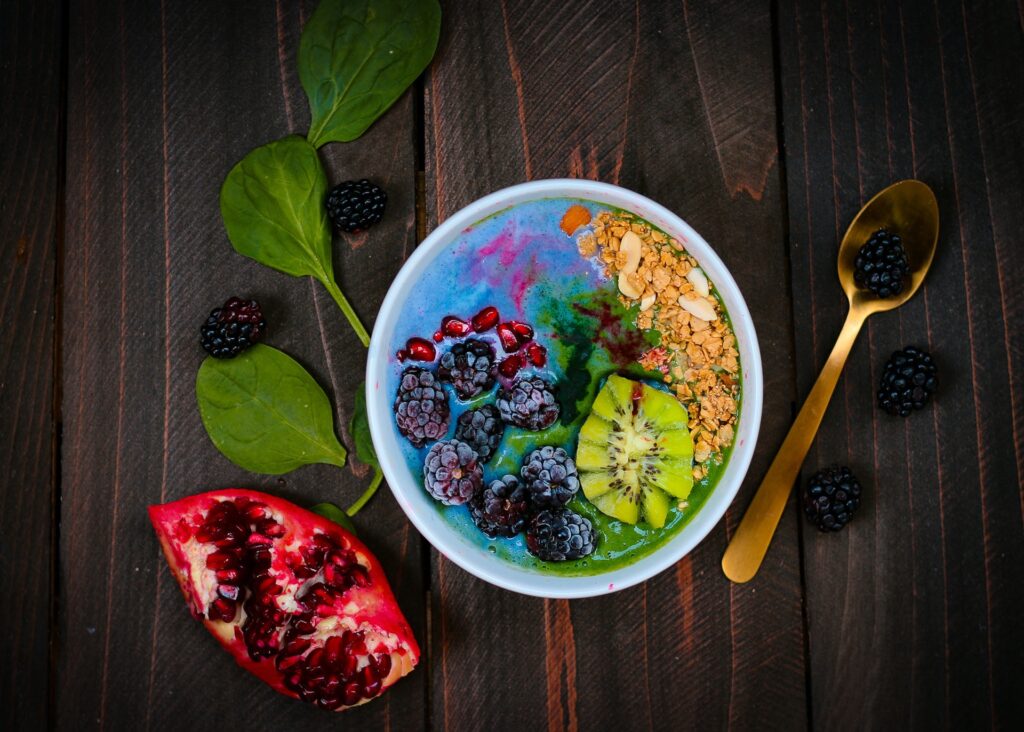
Pregnancy nourishment needs to be taken sincerely because the necessary nutrients a baby needs to develop arrive from the mother’s diet. A mother who takes the time to be trained regarding the accurate foods to consume when pregnant and in turn eat the appropriate foods ensures the most favorable nutrients to her baby all the way through a well laid out nutrition through pregnancy plan.
If the mother eats excessively several unfilled calories the baby’s cell growth can be compromised and the baby will contain a low birth weight.
Low birth weight babies are typically prone to frequent health problems.
Throughout the first few months of a pregnancy, a mother’s metabolic rate increases and so does her circulation.
This happens to make sure that the baby receives the nutrients required to grow the baby’s bones, organs, and tissues. Deprived nutrition throughout this phase will direct to an unhealthful baby.
Importance of Nutrition During Pregnancy
Nutrition during pregnancy is an important aspect of pregnancy. It is referring to like the nutrient consumption and dietary preparation that is started beforehand, during, and afterward pregnancy.
Nutrition of the fetus initiates at conception. For this cause, the nutrition of the mother is vital from beforehand conception (perhaps several months beforehand) as well as during the course of pregnancy and breastfeeding. An ever-increasing figure of studies has exposed the importance of nutrition during pregnancy.
The studies revealed that the diet of the mother will have an outcome on the child, up to and comprising the risk for growth, cardiovascular illness, hypertension, and diabetes during the course of life. Your body goes through several physical and hormonal changes throughout pregnancy.
The manner you nurture your body during this time will affect your well-being and your baby’s. You must have a healthy, stable diet to aid ensure you stay healthy all the way through your pregnancy.
The food you consume is your baby’s chief source of nutrition, so it’s critical to eat foods that are ironic in nutrients. Good nutrition during pregnancy can help encourage your baby’s growth and improvement.
The importance of nutrition during pregnancy cannot be denied. An insufficient or unnecessary amount of certain nutrients may perhaps cause deformities or medical difficulties in the fetus, and nervous disorders and handicaps are a danger that is run by mothers who are undernourished.
An estimated 24% of babies worldwide are born with lesser than ideal weights at birth owing to a lack of appropriate nutrition.
Personal habits such as intake of alcohol or great amounts of caffeine can harmfully and irrevocably affect the growth of the baby, which occurs in the initial stages of pregnancy.
A healthy and perfect diet during pregnancy plays the utmost vital role for both the unborn baby and the mother. It is significant since it in a straight line affects the weight of the baby by the time of birth. It similarly helps to stop the child from developing sicknesses such as heart disease and fatness later in life.
Calories Required During Pregnancy
Weight gain throughout pregnancy indicates that your body is cherishing the baby appropriately. The blood volume upsurges by almost 60% when you are prepared to give birth. Consequently, for the duration of pregnancy, it is vital to contain vitamins, minerals, proteins, fats, and carbohydrates as a portion of each diet.
For a healthy baby, you need around 300 calories additional each day (if you have standard body weight). That being said, for single body requirements, you must ask your doctor.
The single most significant thing that you can make sure for your baby is to eat a fit, well-proportioned diet. A well-balanced diet is one that comprises foods from all food groups in proper amounts, so as to confirm good nutrition.
Proper nutrition confirms that all vital nutrients (carbohydrates, fats, protein, vitamins, minerals, and water) are delivered to the body to preserve ideal health and well-being. So you must include fresh fruits and vegetables in your diet to get the proper nutrition during pregnancy.
Why are Vegetables Important During Pregnancy?
A healthy diet is a very important element to a strong pregnancy and newborn baby.. There are two significant reasons why eating healthy is imperative during pregnancy: the elongated-period health of the mother and the well being of the unborn child.
Healthy Benefits for Baby
The 9 months during which a fetus develops is a critical time for vigorous eating by the pregnant mother. Her baby relies totally on her capability to maintain a healthy diet, and vegetables are an essential part of that.
There are several benefits for the baby of mothers eating vegetables whereas pregnant, including fit birth weights of babies and decreased risks for long-term health complications and diseases.
A Role to Play in Your Baby’s Birth Weight
Throughout pregnancy, your diet can have a straight impact on your baby’s birth weight. The diet that fulfills the suggested calorie and nutrient intakes are more probable to result in a healthy birth weight, which can decrease your baby’s danger of disease and additional health issues.
Vegetables, in particular, have been exposed to contain a beneficial result on baby’s birth weight, so incorporate plenty of these in your diet to sustain your baby’s growth and development.
The Protective Properties of Fruit and Vegetables
The antioxidants present in several fruits and vegetables can help out defend your baby’s cells from harm caused by damaging compounds present in the environment. An excellent eating of fruit and vegetables as an element of a well-balanced pregnancy diet may perhaps as well help to defend your baby from developing allergies and affected by symptoms later in life.
Studies have found a variety of connections between a mother’s fruit and vegetable eating and their baby’s healthiness:
Vitamin E, which can be found in spinach, broccoli and butternut squash is considered to help out avert wheezing and asthma.
Some examination recommends that green and yellow vegetables, citrus organic product, and those having carroty-toned beta-carotene, for example, sugary potatoes, carrots and oranges potentially will diminish the danger of childhood eczema.
Best Vegetables to Eat During Pregnancy
The Vegetable has numerous benefits for normal as well as for pregnant women. But it is as well essential to make a thorough research regarding the best vegetables to eat during pregnancy because every mother’s condition is different from another mother.
So it is important to carefully choose the vegetables in pregnancy according to the need and condition of a pregnant woman.
Let’s dive into the list of best vegetables to eat during pregnancy.
1. Leafy greens
The green leafy vegetables during pregnancy are the most beneficial. Even if you hate them know that they are the top pregnancy foods that you can always have.
Select spinach, fenugreek, mustard greens, collard greens, leafy lettuce and build them a usual in your diet plan.
They are an enormous source of folate and calcium with a complete lot of other significant micro nutrients like manganese, potassium, fiber, iron, and traces of additional important vitamins.
Want more reasons to include these greens on your plate?
The nutrients in these veggies shelter your baby from developing innate defects like spina bifida.
2. Broccoli
Include this veggie to your diet to obtain its double benefits calcium and folate. Need more out of it? There are traces of fiber, antioxidants, iron and additional micro nutrients that create it approximately a wonderful-food for a mum-to-be.
3. Sweet potatoes
They are high in their dietary value. Separately from being a prosperous resource of vitamin A, they are as well high in potassium and nutritional fiber. Potassium prepares the mother healthy for the lactation period, while the food fiber in the vegetable helps battle constipation, an irritating symptom of pregnancy.
Sweet potatoes are as well rich in vitamin B-6 which helps in red blood cell creation in the fetus and avert morning illness in the mothers.
4. Pumpkin
Pumpkins are excellent for pregnant women. They can be served in boiled, baked, steamed or roasted form or utilized in soups and purees. You can cook the seeds and consume them as a snack. They can reduce abdominal cramps throughout pregnancy if you fry them, steam them and include stir/fry or consume them as a potage or tartlet.
Pumpkins are extremely healthy. Pumpkins restrain Protein, Fat, Carbohydrates, and Vitamin A, 0.03 mg Vitamin B1, Vitamin B2, Niacin, Vitamin C, Calcium, Phosphorus, and Iron. Their extremely high Vitamin A content, in particular, makes them extremely significant throughout the pregnancy period.
5. Tomatoes
They are an all-time preferred among the other vegetables. You can utilize them as salads; include stirring fries or just having them uncooked. They are high in vitamin C and iron content and as well contain antioxidants that can shelter against cell destruction at some stage of pregnancy.
6. Avocados
While a bit rare if compared to the other regular vegetables but is filled with a lot of several nutrients. Avocados are rich in fiber, vitamin K, folate, potassium and vitamin B6. They as well help out in the brain and tissue development of the baby.
7. Beetroots
This vegetable has the competence to sanitize blood throughout pregnancy and shield the developing baby from every kind of birth defects. Prosperous in folic acid, vitamin C and iron content, beetroot assists in removing the toxics from the body and in appropriate functioning of the liver.
That means an improved functioning digestive system and a fit pregnancy for you.
8. Carrot
Carrot is recognized to be one of the mainly resourceful of all vegetables since of its nutritive worth, which is extremely appropriate to be taken as juice as well. Though it beyond doubt tastes excellent, its cleansing outcome in your body offers an abundance of health benefits during pregnancy as well.
Below are the benefits of carrot during pregnancy:
Carrot helps purification your liver.
Your immune system becomes weak in pregnancy to maintain development of the fetus. Carrot helps in boosting your protection.
Pregnancy is the time when you require staying secure. Usual intake of carrot keeps at cove problems like bronchitis.
Carrots help out keeping the cell membranes well by fighting in opposition to infections.
9. Spinach
Spinach is abundant with folate or folic acid. You are recommended to take folic acid during pregnancy to shield your developing baby from birth defects such as crack lip, cleft palate, and spina bifida. Reduce the possibility of early birth: it prevents anemia and boosts lung development.
10. Summer squash
Squash is one of the healthiest foods a mum-to-be can eat all through her pregnancy. Vitamin A is rich in the acorn squash. Squash has approximate 30% of what you require in a day.
(Pregnant women require 770 mcg/day of Vitamin A.) The majority vision development is started from week 4 of pregnancy (as soon as the optic nerves form) up awaiting week 26 when your baby’s eyes are approximately completely formed. They can yet open their eyelids in the uterus.
11. Kale
Kale is one of the best green leafy vegetables to eat during pregnancy which has numerous benefits for expectant mothers. It contains a good amount of calcium, fiber, vitamin A, B, C, K and D which are essential for the growth and expansion of your baby.
12. Collards
The collards are other green leafy vegetables during pregnancy. The collard green contains the high quantity of vitamin K which enhances the calcium assimilation decrease urinary secretion of calcium and work as a modifier of bone medium proteins.
13. Asparagus
Asparagus is measured to be a healthy vegetable during pregnancy when eaten in moderate amounts because of its rich content of minerals and vitamins, with the green variety being more beneficial than the white one. It is also rich in folic acid and calcium content.
14. Cabbage
It is prosperous in vitamin C, potassium and phosphorous. The vegetable has an inspiring nutrient outline that makes it a significant element of your pregnancy diet. It improves DNA health, excellent for digestion, regulates blood pressure and enhances bone health and immunity.
15. Turnips
Turnips are as well called root crop or vegetable, but they are a piece of the Cruciferous family. Turnips are an affluent resource of vitamins mainly Vitamin C. it promotes the strong development of lungs, purify the body, fights in opposition to cancer and give immunity.
Summary
Pregnant women require ensuring that their diet provides sufficient nutrients and energy for the baby to increase and grow appropriately. They as well require making confident that her body is healthy sufficient to deal with the changes that are happening.
For a vigorous and fit pregnancy, the mother’s diet required being balanced and nourishing this involves the accurate balance of proteins, carbohydrates, and fats, and consuming an extensive selection of plants like vegetables, and fruits.

